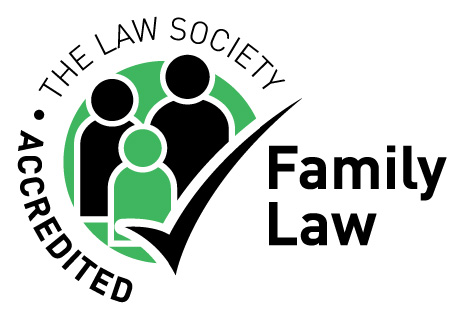Divorce and Finances Legal Advice Enfield, Finchley, North London and Hertfordshire
A breakup or a divorce can be one of the most stressful and emotional experiences in life. It launches you into unchartered territory; it triggers all sorts of painful and unsettling emotions. Everything is disrupted, your routine, your responsibilities, home, finances, relationships with extended family and friends, even your identity.
Our Family Law Team is led by specialist family law solicitor Vijaya Sumputh, a formidable force with excellent family law negotiation and litigation skills gained over 20 years of helping clients with family law and divorce across England and Wales. A member of Resolution and an award-winning divorce lawyer based in London, she and our other family lawyers are wholeheartedly committed to getting the best results for our clients whilst preserving vital family relationships.
Call our divorce lawyers today on 0208 363 4444 or complete our online contact form and we will be in touch to discuss your matter further.



Experts say it is normal to feel sad, angry, exhausted, frustrated and confused and these feelings can be intense and therefore counselling is one way of helping and accepting those reactions. While many may find with time that they can deal with the emotions, a lot struggle to deal with the financial implications of the breakup, especially for those that were financially heavily reliant on their partner.
Sorting out the finance following a marriage breakdown is difficult and this area of law is complex and emotions can run high.
Our family lawyers can offer you clear and pragmatic advice. This will include advice on the appropriate division of the family assets including the family home and other capital assets (savings, investments, trusts and so on), advice on income, the level of maintenance both for you and for the children and dealing with pensions.
Our family practitioners are also experienced in advising on more complex financial issues in the UK and abroad such as company assets, the family business, offshore trusts, property overseas, bankruptcy, pre-nuptial agreements and complex pension arrangements.
We have well established links with accountants, financial advisors, surveyors, pension and tax experts, trust and business analysts as well as relationship counsellors and mediators.
We will assist you with all the practical steps and can refer you to other trusted legal firms to assist you with all your other needs.
Contact our Divorce Financial Settlement Solicitors Enfield, Finchley, North London and Hertfordshire today
Call us today or complete our online contact form and one of our divorce lawyers in our team will be in touch to discuss your matter further.
Divorce Financial Settlement FAQs
Obtaining a divorce itself does not put an end to the financial relationship between you and your spouse. To separate your finances you must reach a financial settlement. A financial settlement is a legally binding decision on how assets and wealth is to be split now that the marriage has ended.
The simple answer is yes. However, if you are divorced without a settlement, you and your spouse will continue to retain the ability to make financial claims against the other in the future or upon death. You can obtain a financial settlement at any time during the divorce proceedings. Reaching an agreement will depend upon your relationship and the complexity of your assets. It is therefore advisable to reach a financial settlement upon your divorce.
If you and your spouse are in agreement, then the Court should be able to grant you the Financial Order after the pronouncement of your conditional order in the divorce proceedings (previously known as the decree nisi), though it will not take effect until the final order (previously known as the decree absolute) is pronounced. This process normally takes between 8-12 months from start to finish as Court lead times are currently longer than they used to be. However, if you are not in agreement, particularly if your spouse is not willing to disclose all financial information, then it may take much longer, normally between 12-18 months or even more.
A person does not automatically acquire an interest in their spouse’s assets or vice versa by being married. Neither is there a guaranteed system for the division of assets and income on divorce, as some jurisdictions do, in England and Wales. The system here is discretionary. The law in England and Wales set out certain criteria which much be taken into account when formulating a financial settlement. How those criteria are applied varies according to the circumstances of each case and upon the development of Case Law. The Court must balance the criteria when assessing the claims of each spouse if the property is only in one spouse’s name.
Steps may be taken to protect your interest against the family home or any other matrimonial property by registering a notice with the Land Registry to ensure that, the property cannot be sold or that further Charges are placed on the property, without your knowledge, pending negotiations or legal proceedings.
Most cases nowadays are settled by negotiation between the couple and their legal representatives. Some are settled by trial in front of a Judge. However, it is normal to issue Court proceedings about finances to make use of the Court procedure. This allows the couple to have the Court’s assistance in structuring negotiations and exchange of relevant information and valuations. Even when the parties agree, a short Hearing is sometimes necessary to ask the Court to approve the settlement and make a Court Order in the agreed terms.
In order to assess what might be a fair settlement, it is necessary to identify and value each spouse’s assets and income. It is only when the assets and the income have been ascertained and their values agreed that it is possible for the couple to negotiate and reach a settlement or for the Court to make an informed decision.
Financial disclosure is the completion of documents that clarify your financial position as part of the divorce process. Whether you are negotiating a settlement directly with your spouse through solicitors, by mediation or the Court, both parties should provide full and frank disclosure of their assets and liabilities (debts). This process is the only way a solicitor can advise you in detail as to whether the settlement is fair and reasonable.
It provides the other party with information regarding their financial circumstances and evidence to support it. This is often facilitated through the completion of the financial statement (Form E) which is the document the Court will direct the parties to complete if an application is made for a Judge to determine how their assets should be divided.
Each party will then have an opportunity to consider the details provided and they would be at liberty to as for further evidence or clarification if required. The intention of the exchanging the financial information is to ensure that the parties believe they have all the information they need to understand the other spouse’s financial information, hidden assets or otherwise suspicious transactions.
In cases where the assets acquired during the marriage do not satisfy both spouse’s needs, then the needs of the economically weaker spouse (often the parent with whom the children are going to live) is usually given priority in terms of allocation of resources. This is what is called the Needs Approach.
In cases of long marriages, where there is a surplus of assets, the Courts move away from the Needs approach towards a proposition of equal division based on contribution. This approach emerged out of an important case called White and White and has since been developed further in more recent cases. A Court can diverge from equality by reference to the Needs Approach.
Most divorce settlements comprise three main elements.
- Property Order - Transfer of property and/or lump sum
- Periodical Payments - Maintenance/spousal maintenance
- Long term security- Pensions provisions
A Clean Break is when there are no ongoing commitments to each other, i.e. maintenance. Both parties agree to a Clean Break which prevents either party from making a future financial claim against the other. Both spouses must agree to a Clean Break. If you cannot agree between yourselves then you may need the help of the Courts. This Order severs all financial ties and protects you against the other party making any future claim against any assets you have or acquire.
All divorces in this country are obtained by proving that your marriage has “irretrievably broken down”.
The Divorce Dissolution and Separation Act 2020 came into force on 6th April 2022 and created a new procedure enabling parties to divorce on a ‘no fault’ basis. It is therefore no longer a requirement to provide reasons for the breakdown in the marriage. However it is still necessary to provide a statement confirming the marriage has broken down irretrievably. Under the new procedure, you can either issue the divorce application yourself as a sole applicant or the application can be issued on a joint basis with one party named as ‘applicant 1’ and the other as ‘applicant 2’.
Further conditions on divorce are that you must have been married for at least a year before you start the divorce proceedings and one of you must have been living in the UK for the last twelve months. It does not matter if you were married in another country. If neither of you have lived in the UK for the last 12 months, contact us for more specialist advice on jurisdiction as it still may be possible for an English court to deal with your divorce.
No, it is not necessary to obtain the assistance of a solicitor but it can definitely help. During the divorce process, under a sole application the respondent will be required to respond to the application. If any of the paperwork is completed incorrectly, this can cause delay and sometimes even increase the court fees payable. We can ensure all the papers are in order for you so that the process is as quick and simple as possible.
A solicitor will also give you a clear understanding of what you might expect as a financial settlement ie how to divide the assets from the marriage. You may not be aware of how the courts decide such things and the early advice of a solicitor will help you to plan for a realistic and fair settlement. It is important to try and negotiate to settle the financial issues amicably. A solicitor will assist you in doing this. This is important as if the court decides you have acted unreasonably at any stage, they can require you to pay some of your spouse’s legal costs.
Arrangements for your children are not automatically dealt with when you apply for divorce. The Court will only involve itself in your arrangements for the children if you or your spouse make a formal court application for this to be dealt with. We would always encourage you to reach an amicable agreement with your spouse on children issues wherever possible. However, we can take emergency action to safeguard your position if you feel the children are ever at risk.
There will be a court fee payable which is currently £593. If a party is on a low income and only has limited savings, it may be possible to ask the court for a reduction of the fee. If you choose to instruct a solicitor to formally represent you in relation to the divorce proceedings there will also be solicitor’s costs involved. The services are usually charged on a time spent basis and the overall cost will depend on the circumstances of each case. Our solicitors here will be able to provide you with a fee estimate once further details have been taken about your individual case.
Resolving any issues regarding the arrangements for the children and the finances are separate services because they are more complex and unique to your personal circumstances. These services are again usually chargeable on a time basis – depending on how long it takes to bring matters to a conclusion. If you cannot reach agreement about these issues amicably, the cost will be greater. We encourage prompt and realistic negotiations aimed at reaching a positive agreement wherever possible.
Solicitors are obliged to give you information at regular intervals about how much the costs are. Public Funding (Legal Aid) is rarely available in family cases now and Curwens no longer operate a Public Funding franchise in any event.
Under the new procedure we estimate the time frame from start to finish will be around 8-12 months. An application may be made to the court for it to consider the making of a conditional order (previously known as the decree nisi) at any time after the period of 20 weeks from the date the application was issued. There will be a cooling off period of 6 weeks from the date of the conditional order (previously known as the decree nisi) before an application for a final order can be made. However the overall time taken may be longer, depending on the issues raised and whether there are any ongoing negotiations relating to the financial matters.
This very much depends on your family’s circumstances – e.g. how long you have been married, whether there are minor children, and what other assets and income you each have.
Generally speaking, all the assets (the house, cars, savings etc.) are considered “matrimonial assets” regardless of who bought them or whose name they are held in. Firstly, there needs to be full disclosure of all assets, along with any liabilities and details of income, pensions and businesses. Once you have exchanged this information we can assist you in trying to reach an amicable agreement over how to divide the assets between you and your spouse. If agreement cannot be reached, it may be necessary to ask the Court to help make a decision for you.
You would usually each retain those personal belongings you bought or which were given to you. Under normal circumstances any such difficulties are resolved quickly with or without the assistance of your solicitor.
This will depend on its value, what other assets there are, and how long the marriage lasted. Pension values always have to be disclosed, but if you are both young, there are no children and the marriage was very short, you are likely to retain your entire pension fund. However, the court has the power to make a Pension Sharing Order if it seems fair and reasonable in all the circumstances– this means a percentage of your pension fund is transferred into your spouse’s name at the time of the divorce.
No. Your legal name remains unaffected by the divorce proceedings, but if you want to revert to your maiden name this is possible using your birth certificate and the final order (previously referred to as the decree absolute) ending the marriage. If you want to change to any other name, or revert to your maiden name without any divorce, you need a formal Change of Name Deed which we can draw up for you.






















